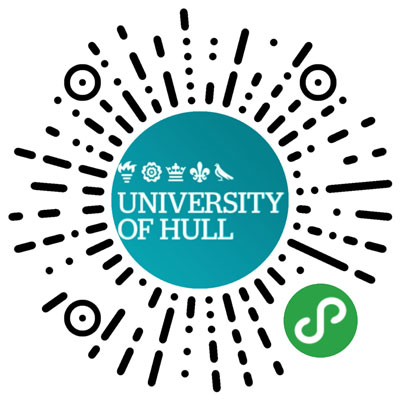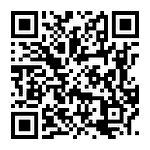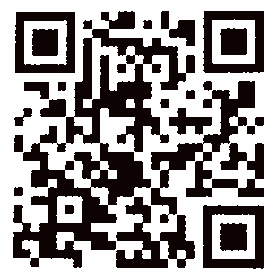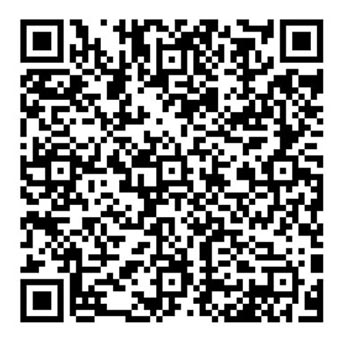Opening a Bank Account: a guide for European and International Students
Tips and practical advice about how to open an account in Hull
This guide contains information about what type of documents you will need to open a bank account in Hull.
UK banks are keen to open accounts for European and International Students. However, as they need to collect certain information from you to meet UK government financial rules the process of opening a bank account can sometimes take a few days and often span into weeks.
You need to follow the instructions below before you can open a bank account:
Step 1. Research which bank you would like to bank with. The main banks close to campus can be found at the end of this information.
Step 2. Gather all the documents needed to open an account: For most banks you will need to provide:
Your passport or EU identify card
Your bank letter to verify your student and course status See how to obtain this below.
Your permanent University or private address.
Your address will be outlined on your contract, if you are living temporary university accommodation, you should give the banks your permanent university address only. You should note that if you cannot prove your permanent address
then you are unlikely to be able to open an account until you have proof. This can be through your contract or a letter from your landlord confirming permanent residence / address.
Step 3. You need to visit your chosen bank. The banks will be very busy at the start of term. Try to avoid lunchtimes which are very busy periods. Due to financial regulations many of the banks will not open an account for you straight away. You will be allocated an appointment and have to return with all your documentation. The appointments usually take approximately 1 hour and these will be limited. Do not be late for your appointment with the bank otherwise you could have to wait for another appointment which will delay your bank account opening.
How to obtain your Introduction to a bank letter. Bank letters will be produced on an appointment basis on Thursday 22nd and Friday 23rd September 2016 for those students who have confirmed their arrival with us and will arrive by Thursday 22nd September. You will receive confirmation of your time slot for bank letters during the week beginning 12 September 2016.
If you arrive on or after 23 September 2016, bank letters will be provided between 10 – 4 p.m. Monday to Friday during the weeks beginning 26 September and the 3 October 2016. This is by appointment only and you will need to go to the link below to book your time slot. You will need to show your appointment to the staff in the Admissions Reception which is situated on the ground floor of the Venn Building to the right as you go through the 2nd set of main doors.
From 10 October 2016, the letters will be produced in the International Office during Wednesday afternoons only and you will need to drop in between 2 – 4 p.m. The International Office is in the Dennison Centre on the 1st floor. Remember opening a bank account takes up to 4 – 6 weeks to complete and there is nothing we can do make this process any quicker.
Students who have confirmed arrival on 20,21, 22 September or earlier. Student who have confirmed their arrival and are full degree programme students will be allocated a time to have their bank letter completed on 22nd and 23rd September 2016. Please bring all the documents outlined in Step 2 with you and make sure you have chosen your bank before attending.
Students who arrive from 23rd September 2016. Please make an appointment to have your bank letter completed by going to: http://introduction_to_bank_letter.eventbrite.co.uk. Bring your appointment with you please. Please bring all the documents outlined in Step 2 with you and make sure you have chosen your bank before attending.
Exchange and Study Abroad students: All exchange student bank letters have been completed and are included in a specific pack for this status of student. Students who are on campus for up to 6 months only will be limited to which bank they can choose and will have limited options for opening bank accounts.
If you have any difficulties opening a bank account, please talk to the Customer Services department at the Bank.
There are standard bank opening hours in the UK and banks are usually open Mondays to Friday 9.00am-5.00pm some close earlier and some open on a Saturday morning.
The University of Hull cannot assist with complaints about banks. If you wish to make a complaint about a bank write to: The Financial Ombudsman Service South Quay Plaza, 183 Marsh Wall, London, E14 9SR Tel: 0800 0234567
Location of main banks in Hull
Lloyds Newland University: 63-67 Newland Avenue, Hull HU5 3BG
Lloyds Hall Road Hull: 434 Cottingham Road, Hull HU6 8QS
Lloyds Derringham Hull: 2 Willerby Road, Hull HU5 5JJ
Lloyds Hull City Centre: 1 Grand Buildings, Jameson Street, Hull, HU1 3JX
HSBC Beverley Road: 550 Beverley Road, Hull, East Yorkshire, HU6 7LQ
HSBC Jameson Street: 3-4 Jameson Street, Hull HU1 3JX
HSBC Whitefriargate: 55 Whitefriargate, Hull HU1 2HX
HSBC Cottingham 112 King Street, Cottingham, HU16 5QE (This branch will be permanently closed from 7 October 2016)
NatWest Hull City Centre: 34 King Edward Street, Hull HU1 3SS
NatWest Hull University: 4 Cottingham Road, Hull HU6 7WZ
NatWest Cottingham: 164 Hallgate, Cottingham HU16 4YD
Barclays Hull City Centre: 1/5 King Edward Street, Hull HU1 3RL
Barclays Hull Cottingham Road: 18 Cottingham Road, Hull HU6 7RB
Barclays Cottingham: 92 King Street, Hull HU16 5QE
Santander 6-8 King Edward Street, Hull HU1 3SS
Common terminology and other information on UK bank accounts
Cash card/ ATM card
A card that allows you to take money out of your account using a bank machine, referred to as a ‘cash machine’, ‘cashpoint’, ‘hole-in-the- wall’ or ATM. You will be given a Personal Identification Number (PIN) so that you can use the card to withdraw money. Do not allow anyone else to see your PIN number and destroy the letter after you have memorised the number.
You can normally use your cash card at several different banks, without a charge, but in some cases there may be a charge if you use it in a different ‘system’, particularly if you use a non-bank cash machine, for example a cash machine in a shop or at a petrol station. The machine will warn you if there is going to be a charge before you withdraw the money.
Cards can also be used in other countries to withdraw money from your UK bank account but you will pay extra bank charges.
Debit card/ chip and pin
A card issued by a bank (usually a combined cash/debit card) that you use to pay for your shopping. The money is usually taken from your account immediately so you must have the funds available in your bank account when you make purchases. The UK uses a chip and pin system where you can use your card to pay for purchases in shops by entering your PIN number.
Cash-back
Some supermarkets or shops allow you to get cash-back when you buy your groceries. They will give you cash from the till by adding the amount to your total shopping bill paid by debit card.
Contactless cards
A number of banks now offer contactless cards which allow you to pay for small purchases (usually up to £20) by tapping the machine in the shop without needing to enter a PIN number or sign for the purchase.
Look for this logo:

Cheque book
Cheques are becoming a less common method of payment and nearly all shops have stopped accepting them. There may be times when you need to write a cheque e.g. when joining a sport or social club to pay the fees. Chequebooks are not available for all types of account. Always keep your cheque book in a safe place. If you lose your cheque book, or want to cancel a cheque you have written, contact your bank immediately.
Direct debit or Standing order
A method of paying bills from your bank account. You sign a form allowing the company you are paying to take the money directly from your account each month. If you go over your agreed limit, there are usually penalties.
Overdraft
A facility allowing you to spend more money from your account than you have in it. The bank will usually charge you interest if this happens, and other fees.







